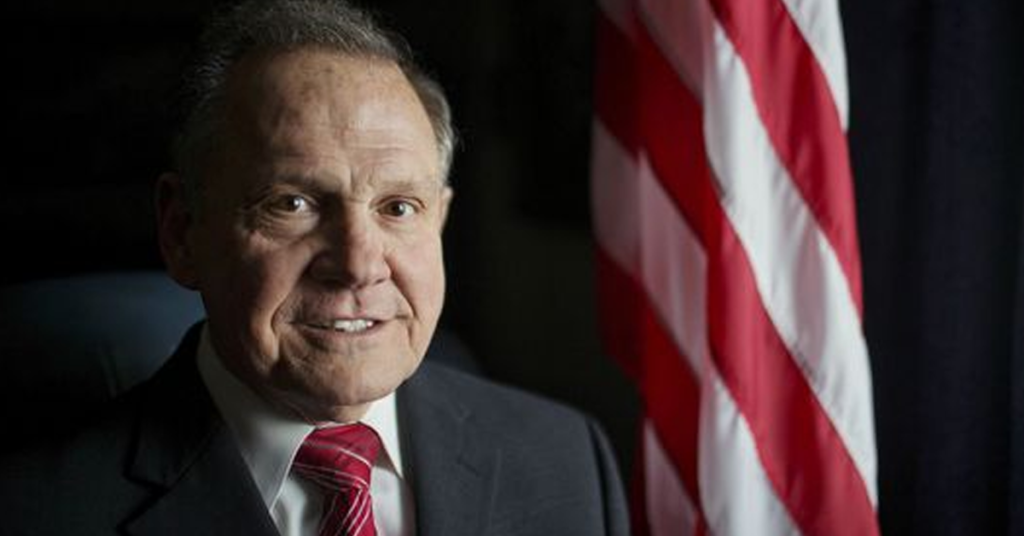Gov. Kay Ivey applauds Supreme Court decision strengthening a worker’s right to seek religious accommodation from employers

On Thursday, the U.S. Supreme Court ruled unanimously that the U.S. Postal Service should have accommodated a Christian mailman’s religious belief that he not be forced to work on Sunday by his employer. The decision in favor of the Christian mailman was applauded by Alabama Governor Kay Ivey. “Today’s unanimous decision from #SCOTUS reaffirms what we’ve always believed here in Alabama; that religious liberty is at the core of our country’s way of life, and government should never interfere with citizens’ desire to worship,” Gov. Ivey wrote on Twitter. This decision is a victory for America.” Gerald Groff is a Christian mail carrier in Pennsylvania. The Postal Service required Groff to deliver Amazon packages on Sundays. Groft cited the Ten Commandments, which tell followers to keep holy the Sabbath. In Groff v. DeJoy, Groff asked the court to decide whether the U.S. Postal Service could require him to deliver Amazon packages on Sundays. His attorney, Aaron Streett, argued in April that the 1977 precedent in Trans World Airlines, Inc. v. Hardison did not adequately protect workers’ religious liberties and should be revisited. The Court agreed that the “undue burden” de minimis standard in that ruling did not adequately protect Americans’ freedom of religion. The Court agreed that the “undue burden” de minimis standard in that ruling did not adequately protect Americans’ freedom of religion. The nine justices overturned the Third Circuit Court of Appeals decision against Groff as well as reworking the precedent set in Transworld v. Hardison. Justice Samuel Alito wrote the unanimous opinion. “We hold that showing ‘more than a de minimis cost,’ as that phrase is used in common parlance, does not suffice to establish ‘undue hardship’ under Title VII,” said Alito. “Hardison cannot be reduced to that one phrase. In describing an employer’s ‘undue hardship’ defense, Hardison referred repeatedly to ‘substantial’ burdens, and that formulation better explains the decision. We therefore, like the parties, understand Hardison to mean that ‘undue hardship’ is shown when a burden is substantial in the overall context of an employer’s business.” The High Court also wrote, “An employer who fails to provide an accommodation has a defense only if the hardship is ‘undue,’ and a hardship that is attributable to employee animosity to a particular religion, to religion in general, or to the very notion of accommodating religious practice cannot be considered ‘undue.’ If bias or hostility to a religious practice or a religious accommodation provided a defense to a reasonable accommodation claim, Title VII would be at war with itself.” Liberty Counsel is a nonprofit defender of religious liberties. Liberty Counsel wrote an amicus brief in favor of Groff’s position. Liberty Counsel Founder and Chairman Mat Staver said, “Today marks the end of the era of religious discrimination caused by hostility towards religious claimants under Title VII. The Supreme Court rightfully relegated the de minimis test for religious discrimination to the dustbin of history and restored claims of religious discrimination to their rightful place of protection under Title VII.” The new decision tightens the “undue hardship” standard and could make it easier for some individual employees to secure a religious accommodation at work. The Freedom From Religion Foundation, which opposes religion in public life, argued that the ruling did not go as far as religious advocates had hoped. “Contrary to the religious right spin, today’s opinion did not give Gerald Groff and his conservative Christian backers what they asked for and wanted,” FFRF wrote in a statement. “Groff asked the court to overrule Hardison v. TWA and change the legal test to drastically favor religious employees. He also asked the court to rule that burdens on employees are never sufficient to establish undue hardship on the conduct of a business. The unanimous court did not do any of those things.” To connect with the author of this story or to comment, email brandonmreporter@gmail.com.
AG Steve Marshall applauds Supreme Court ruling upholding Christian web designer’s right to deny service to a gay wedding

On Friday, Alabama Attorney General Steve Marshall welcomed a 6 to 3 U.S. Supreme Court ruling that protects a Denver area Christian web designer’ from having to build a website for a gay couple’s same-sex wedding in violation of her Christian principles and beliefs. 303 Creative and its owner, Lorie Smith, is a graphic artist and website designer in Colorado. Smith expanded her business into wedding website design. Smith’s deeply held Christian beliefs prohibit her from promoting same-sex weddings. Colorado’s anti-discrimination law forbids businesses from denying service to LGBTQ+ persons seeking service. Under that law, if Smith designed and promoted custom websites for opposite-sex weddings, she would have to design and promote custom websites for same-sex weddings too. Smith filed a suit claiming that the law violated her First Amendment rights to practice her religion and her free speech rights and that the Colorado law as such is a blatant violation of the Bill of Rights. The lower court ruled against her. Undeterred, Smith appealed to the Tenth Circuit Court of Appeals, which also ruled against Smith, and then appealed to the Supreme Court. The Supreme Court’s opinion in 303 Creative v. Elenis reaffirms that the First Amendment prohibits the government from forcing citizens, including business owners, from speaking messages with which they disagree. In the 6-3 opinion, the Supreme Court reversed the Tenth Circuit Court of Appeals decision against Smith. “The Constitution and our First Amendment prevail,” Marshall said in a statement. “All Americans enjoy the right to freedom of conscience, and that freedom means the government cannot coerce anyone to speak against their deeply held beliefs,” said Attorney General Marshall. “Today’s decision confirms that state and local government are not ‘immune to the demands of the Constitution.’” In June 2022, Attorney General Marshall signed on to a 20-state amicus brief urging the Supreme Court to protect the First Amendment rights of business owners. The brief argued in support of Smith. Liberty Counsel, a nonprofit legal advocacy group that defends religious liberty, also filed an amicus brief in favor of the web designer’s right to deny service. Liberty Counsel said in a statement that the Colorado state law censors and coerces the speech of creative professionals whose religious beliefs do not conform to state-accepted beliefs. Liberty Counsel Founder and Chairman Mat Staver said, “This is a great victory for the right of individual speech and expression. The state cannot force people to convey a government-approved message against their religious beliefs or individual choice. Film, theater, art, and other creative expression would not exist if the government could censor the message.” Justice Neil Gorsuch wrote the opinion, which was joined by Chief Justice John Roberts, and Justices Samuel Alito, Clarence Thomas, Brett Kavanaugh, and Amy Coney Barrett. The three liberal Justices, Sonia Sotomayor, Elena Kagan, and Kentanji Brown Jackson, dissented. “The First Amendment protects an individual’s right to speak his mind regardless of whether the government considers his speech sensible and well-intentioned or deeply ‘misguided,’ and likely to cause ‘anguish’ or ‘incalculable grief.’ Equally, the First Amendment protects acts of expressive association,” Justice Gorsuch wrote. “Generally, too, the government may not compel a person to speak its own preferred messages. Nor does it matter whether the government seeks to compel a person to speak its message when he would prefer to remain silent or to force an individual to include other ideas with his own speech that he would prefer not to include. All that offends the First Amendment just the same.” “Applying these principles to this case, we align ourselves with much of the Tenth Circuit’s analysis,” Gorsuch continued. “The Tenth Circuit held that the wedding websites Ms. Smith seeks to create qualify as ‘pure speech’ under this Court’s precedents. We agree. It is a conclusion that flows directly from the parties’ stipulations. They have stipulated that Ms. Smith’s websites promise to contain ‘images, words, symbols, and other modes of expression.’ They have stipulated that every website will be her ‘original, customized’ creation. And they have stipulated that Ms. Smith will create these websites to communicate ideas—namely, to ‘celebrate and promote the couple’s wedding and unique love story’ and to ‘celebrate and promote’ what Ms. Smith understands to be a true marriage. We part ways with the Tenth Circuit only when it comes to the legal conclusions that follow. While that court thought Colorado could compel speech from Ms. Smith consistent with the Constitution, our First Amendment precedents laid out above teach otherwise.” “Nor is it any answer, as the Tenth Circuit seemed to suppose, that Ms. Smith’s services are ‘unique,’” Gorsuch continued. “In some sense, of course, her voice is unique; so is everyone’s. But that hardly means a State may coopt an individual’s voice for its own purposes.” “The First Amendment extends to all persons engaged in expressive conduct, including those who seek profit (such as speechwriters, artists, and website designers),” Gorsuch wrote. If anything is truly dispiriting here, it is the dissent’s failure to take seriously this Court’s enduring commitment to protecting the speech rights of all comers, no matter how controversial—or even repugnant—many may find the message at hand.” Justice Sotomayor wrote the dissent. “Today, the Court, for the first time in its history, grants a business open to the public a constitutional right to refuse to serve members of a protected class,” Sotomayor wrote. “New forms of inclusion have been met with reactionary exclusion. This is heartbreaking. Sadly, it is also familiar. When the civil rights and women’s rights movements sought equality in public life, some public establishments refused. Some even claimed, based on sincere religious beliefs, constitutional rights to discriminate. The brave Justices who once sat on this Court decisively rejected those claims.” The last day of Pride Month perhaps ironically ends with a Supreme Court ruling affirming that LGBTQ+ rights do not mean that the state can deprive other citizens of their free speech and religious liberty rights. The Human Rights Campaign (HRC) released a statement denouncing the decision. “This decision by the Supreme Court is a dangerous step backward, giving some businesses the power to
U.S. Senate to vote on Respect for Marriage Act; several groups say it’s unconstitutional

Several groups argue the Respect for Marriage Act (ROMA) currently before the U.S. Senate is unconstitutional and, if enacted, will eventually be struck down by the U.S. Supreme Court. The bill, HR 8404, was introduced in the House by U.S. Rep. Jerry Nadler, D-NY, on July 18 and passed by a vote of 267-157 the next day. The U.S. Senate took it up on Nov. 14. It would provide “statutory authority for same-sex and interracial marriages” and repeal several provisions of the 1996 Defense of Marriage Act (DOMA). The 1996 law received bipartisan support, including from then U.S. Sen. Joe Biden and U.S. Rep. Chuck Schumer, D-NY, and from Democratic President Bill Clinton, who signed it. When a constitutional amendment was proposed to ban same-sex marriage in 2006, Sen. Biden told Meet the Press’s Tim Russert, “I can’t believe the American people can’t see through this. We already have a law, the Defense of Marriage Act … where I voted and others … that marriage is between a man and a woman, and states must respect that. … Why do we need a constitutional amendment? Marriage is between a man and a woman.” Sixteen years later, President Biden now supports replacing DOMA provisions, which “define, for purposes of federal law, marriage as between a man and a woman and spouse as a person of the opposite sex,” with ROMA provisions “that recognize any marriage that is valid under state law,” according to the bill summary. The summary also notes that the Supreme Court ruled three marriage-related laws as unconstitutional: DOMA (U.S. v. Windsor, 2013) and state laws banning same-sex marriage (Obergefell v. Hodges, 2015), and interracial marriage (Loving v. Virginia 1967). The bill would also allow “the Department of Justice to bring a civil action and establishes a private right of action for violations,” its summary states. When filing a cloture motion on a substitute amendment on Nov. 17, now Senate Majority Leader Schumer said the Senate would vote on ROMA when it returned on Monday after Thanksgiving. He said, “Let me be clear,” passing it “is not a matter of if but only when.” He also thanked his colleagues from both sides of the aisle “who led this bill.” Twelve Republicans voted with Democrats to allow it to move forward, eliminating a filibuster threat: Sens. Roy Blunt, Richard Burr, Shelley Capito, Susan Collins, Cynthia Lummis, Rob Portman, Mitt Romney, Dan Sullivan, Thom Tillis, Joni Ernst, Lisa Murkowski, and Todd Young. After their vote, Biden said, “Love is love, and Americans should have the right to marry the person they love,” adding their vote made “the United States one step closer to protecting that right in law.” Schumer also said he had “zero doubt” the bill “will soon be law of the land.” But multiple groups disagree, arguing it’s unconstitutional for the same reasons the Supreme Court struck down DOMA. Because the court already ruled Congress doesn’t have the constitutional authority to define marriage under Article 1 of the U.S. Constitution, and because ROMA is nearly identical to DOMA, they argue it will also likely be struck down. In a letter to Congress, the nonprofit religious freedom organization Liberty Counsel argues the court ruled in Windsor, “DOMA, because of its reach and extent, departs from this history and tradition of reliance on state law to define marriage.” It also ruled, “[b]y history and tradition the definition and regulation of marriage . . . has been treated as being within the authority and realm of the separate States.” Liberty Counsel Founder and Chairman Mat Staver, said, “The Constitution cannot be said to prohibit the exercise of power to define marriage in one manner yet authorize the opposite definition of that same unconstitutional exercise of power. If Windsor noted that Congress lacked authority in this realm, then it necessarily lacks the power here.” While a bipartisan amendment was introduced claiming to protect religious liberty, Sen. Mike Lee, R-Utah, argues it really doesn’t. “Religious Americans will be subject to potentially ruinous litigation, while the tax-exempt status of certain charitable organizations, educational institutions, and non-profits will be threatened. My amendment would have shored up these vulnerabilities,” he said. Heritage Foundation President Kevin Roberts said, “Conservatives are deeply disappointed by the betrayal of Senate Republicans to protect Americans’ religious freedom and won’t soon forget the votes of the 12 Republican senators who cast aside an essential right in a bill that will weaponize the federal government against believers of nearly every major religion.” Gregory Baylor, senior counsel with Alliance for Defending Freedom, also said the law is “unnecessary and could have a disastrous effect on religious freedom. While proponents of the bill claim that it simply codifies the 2015 Obergefell decision, in reality, it is an intentional attack on the religious freedom of millions of Americans with sincerely held beliefs about marriage.” It also “threatens religious freedom and the institution of marriage” by codifying a “false definition of marriage in the American legal fabric,” ADF argues. It also “opens the door to federal recognition of polygamous relationships, jeopardizes the tax-exempt status of nonprofits that exercise their belief that marriage is the union of one man and one woman, and endangers faith-based social-service organizations by threatening litigation and liability risk if they follow their views on marriage when working with the government.” Republished with the permission of The Center Square.
Alabama GOP calls for changes in how the state punishes judges

Alabama’s process for punishing judges needs to be revised, says the Alabama Republican State Executive Committee, spurred by the case against Supreme Court Chief Justice Roy Moore. The group overwhelmingly passed a pair of resolutions this week aimed at the rules leading to the suspension of Moore, as well as those governing the Judicial Inquiry Commission (JIC). Moore is facing charges filed by the JIC over an administrative order he issued in January 2016. The chief judge reminded probate judges that the Alabama Supreme Court barred them from issuing marriage licenses to same-sex couples, despite rulings by both federal and the U.S. Supreme Court legalizing same-sex marriage nationwide. Alabama law maintains a judge being punished can only appeal to the state Supreme Court. The Alabama Republican Party’s executive committee is asking the state Legislature pass a law abolishing the rule that automatically suspends when charges are filed by the JIC. A bill would require final legislative approval of any Alabama Supreme Court decisions that support the removal of a judge from the bench. The resolution also seeks to change the JIC to an elected post. Represented by Liberty Counsel, Moore, under suspension since April, faces trial Sept. 28. “The current situation allows the JIC too much power and the ability to punish judges without due process,” said Mat Staver, founder and chair of Liberty Counsel. “Chief Justice Roy Moore should have never been suspended from his bench from these baseless charges. The JIC has become an arm of the Southern Poverty Law Center and other politically motivated groups. The JIC is not supposed to be politically biased, but it has become so. The JIC needs to be reined in.” Founded in 1989, Liberty Counsel is a nonprofit legal and policy organization which they say is dedicated to providing pro bono assistance and representation related to topics of “advancing religious freedom” and the “sanctity of life.”
Drag queen is suspended Chief Justice Roy Moore’s nightmare

Wearing big hair, loads of makeup and high heels, small-town drag queen Ambrosia Starling is the new worst nightmare of suspended Alabama Chief Justice Roy Moore. Moore has called out Starling twice by name in recent days while defending himself against allegations of violating judicial canons with his opposition to same-sex marriage. During a news conference and in a written statement, Moore cited the cross-dressing entertainer as a reason he’s at risk of losing his job for the second time since 2003. That’s fine with Starling, who helped lead an anti-Moore rally on the steps of the Alabama Supreme Court building in January. Opponents that day filled out more than 40 complaints against Moore, who already was the subject of other complaints and now faces removal from office if convicted of violating judicial ethics. “If it takes a drag queen to remind you that liberty and justice is for all, here I am,” Starling said Tuesday between sips of coffee. Moore contends the effort to oust him is unfounded and politically motivated. Born and raised in the southeast Alabama city of Dothan, Starling is a gay man who dresses up like a woman to perform drag shows. Most days, the 43-year-old Starling dresses like a male and goes to a regular job, referring to himself as “he.” But the entertainer prefers the pronoun “she” when dressed as Ambrosia Starling, a stage name for drag shows. Fearful of losing his day job or endangering others in a Deep South state where many gays still fear violence or discrimination, Starling agreed to an interview on the condition that only the stage name was used. “I have a 71-year-old mother who lives with me that I have to worry about,” Starling said. “Her well-being and safety is No. 1 for me.” Starling wore her drag outfit to that demonstration against Moore outside the Supreme Court five months ago. In a long blue dress and light-colored coat, Starling referred to Moore as a bigot and asked crowd members to submit complaints against Moore to the Alabama Judicial Inquiry Commission, which accused the Republican Moore of wrongdoing on Friday, resulting in his suspension. The complaint filed by the Judicial Inquiry Commission accuses Moore of willfully failing to respect the authority of federal court decisions that cleared the way for gay marriage, which Moore opposes on the basis of faith and the law. He issued an administrative order to state probate judges in January that said state laws against gay marriage remained in place months after the U.S. Supreme Court effectively legalized gay marriage nationwide. An attorney for Moore, Mat Staver, said Moore issued the order because probate judges were asking questions about how to proceed. Staver said Moore will file a response within 30 days asking the Alabama Court of the Judiciary to dismiss charges against him. Moore has been tossed once before from the office of chief justice. Thirteen years ago he refused to abide by a federal judge’s order to remove a Ten Commandments monument Moore had erected in the rotunda of the state judicial building, resulting in judicial ethics charges and his removal by the Court of Judiciary. During a news conference last week in that same rotunda, Moore said Starling and similar people would have been classified as having a “mental disorder” just a few years ago. Moore also accused Starling of performing a “mock wedding” in violation of a state court order against same-sex marriage, a claim Starling dismissed as untrue. Describing himself as a churchgoing Christian who lives a normal life when not dressed in drag, Starling said he doesn’t mind being singled out by Moore. Many more lesbians, gays, bi-sexuals and transgender people also oppose Moore’s tactics, Starling said, it’s just that not everyone can speak out. “I’ll take the hit for the entire LGBT community if it gets the message across,” Starling said. Republished with permission of the Associated Press.


